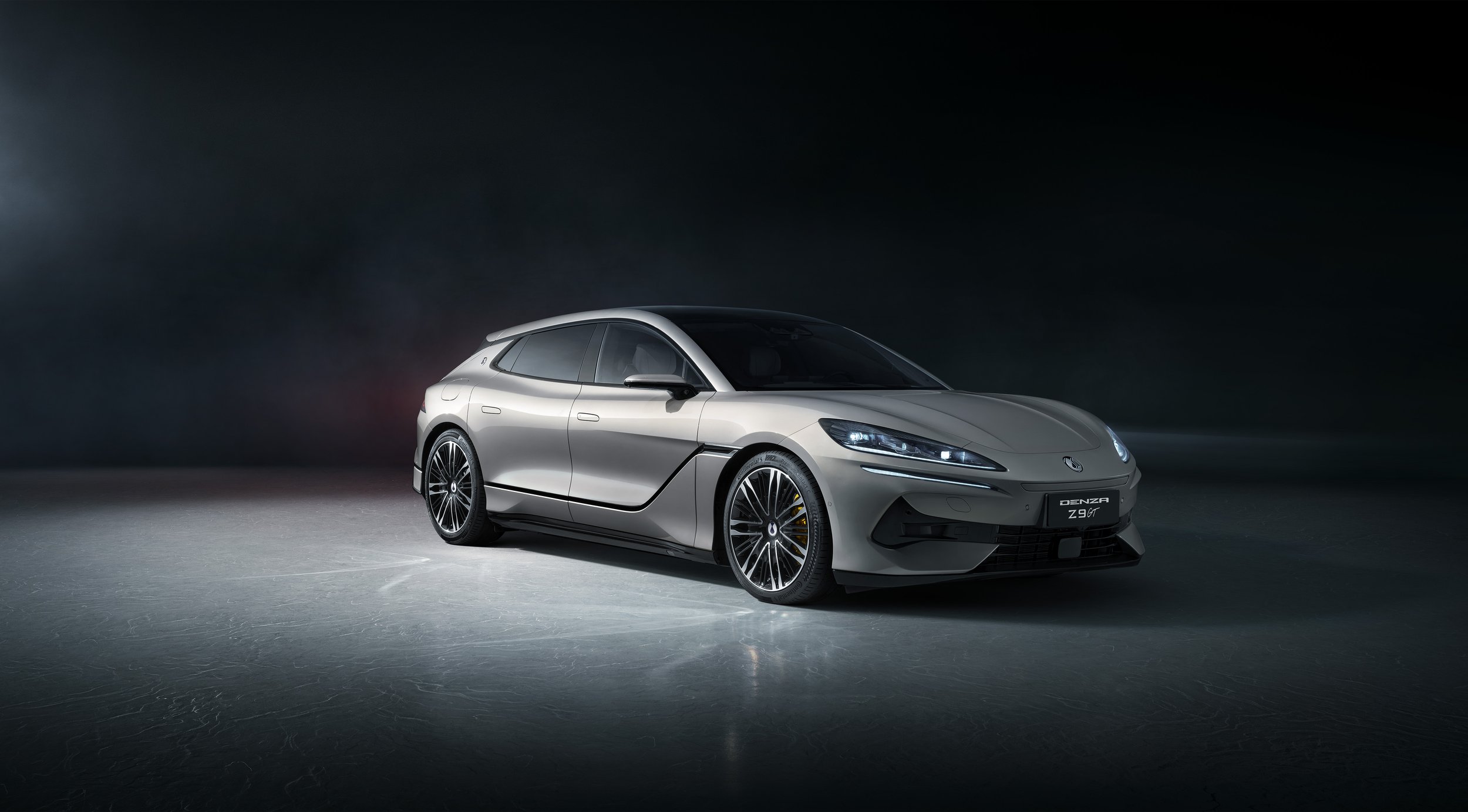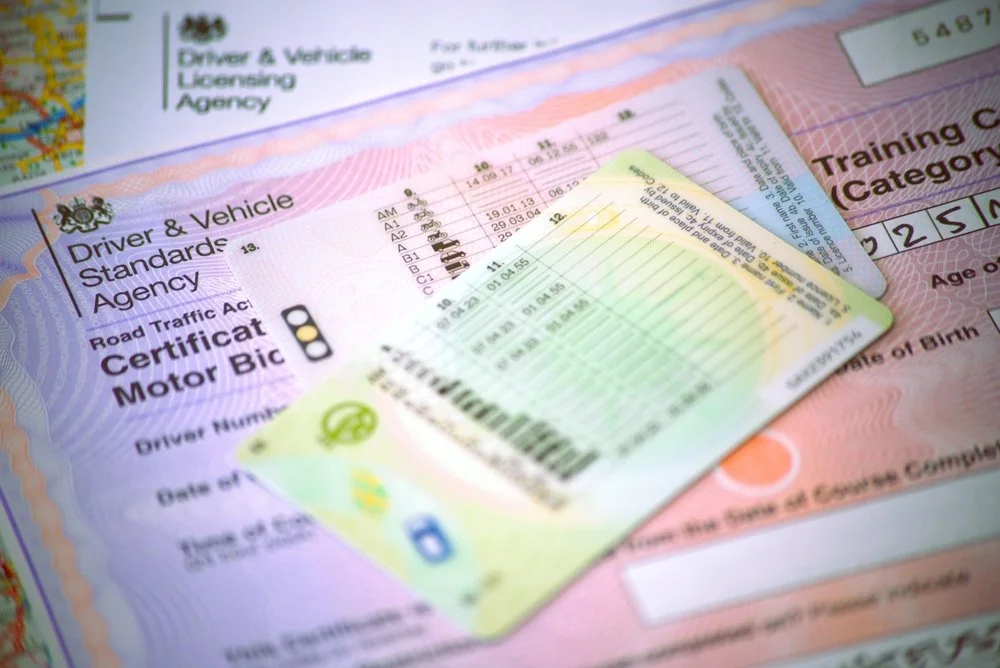Portable Electric Vehicle Chargers: What Are They and Should You Get One?
Source: Shutterstock
As electric vehicle adoption accelerates across the UK, many drivers wonder about portable charging solutions for their EV. Whether you're considering an electric car through a salary sacrifice scheme or already own an electric vehicle, understanding portable charging options can help you make informed decisions about your charging strategy.
What Are Portable EV Chargers?
Portable electric vehicle chargers fall into two distinct categories, and it's crucial to understand the difference when considering your EV charging needs:
True portable EV power banks are self-contained battery units that store electrical energy and can charge your electric car anywhere. These resemble oversized power banks for mobile phones but scaled up for electric vehicles. They're typically the size of a large suitcase and contain lithium-ion batteries that can deliver several hours of charging.
Portable charging cables are simply adaptors that allow you to charge your EV from standard domestic sockets. These are often called "granny chargers" and whilst technically portable, they're limited by available power sources and charge very slowly at around 2.3kW - significantly slower than fast charging at home.
When most people ask about portable electric car chargers, they're referring to the first category - true power banks that can charge an electric vehicle independently of the grid, similar to how workplace charging provides independence from home charging.
Is There a Portable Power Station That Can Charge an Electric Car?
The short answer is: very few, and none readily available to UK consumers in 2025. This contrasts sharply with the expanding public charging network and home charger options that continue improving.
The most promising consumer product remains the ZipCharge Go, a British-designed portable EV charger that has been "coming soon" since 2021. Originally scheduled for release in 2023, the ZipCharge Go is still in production-representative prototype stage with no confirmed launch date.
The ZipCharge Go promises to deliver 20-40 miles of range in around 30-60 minutes using a 7kW charging rate, with planned battery capacities of 4kWh, 6kWh, and 8kWh. The device is designed to be wheeled like a suitcase and recharged overnight using a standard three-pin socket - similar to how many electric car owners charge their vehicles.
However, after multiple delays, the ZipCharge Go's release date has been pushed back further from 2023, and the new release date remains unknown.
Alternative Power Bank Solutions
Some consumers have explored using large portable power stations like Jackery units to charge electric cars. However, these face significant limitations compared to proper EV charging solutions:
Insufficient capacity: Even a Jackery 2000 with 2060 watt-hours capacity is far less than most EV batteries (typically 40-100kWh)
Power output limitations: Most consumer power stations max out at 2-4kW, much slower than dedicated EV chargers
Compatibility issues: Jackery specifically states their products are "NOT APPLICABLE TO ELECTRIC CAR" charging
For emergency situations, some drivers have successfully used larger power stations like the EcoFlow DELTA Pro to provide limited emergency charging, but this requires specific adaptors and only works for very small top-ups - nowhere near the convenience of home charging.
Types of Portable Charging Solutions
Portable Battery Power Banks
ZipCharge Go remains the most anticipated consumer portable EV charger for the UK market. The subscription model was planned at £49 per month, with outright purchase targeting around £500. The device would be ideal for drivers without off-street parking or as an emergency backup solution - addressing similar needs to The Charge Scheme but through portable hardware.
Commercial portable chargers exist but target business users interested in company electric car schemes:
Kempower Movable Charger: A transportable DC fast charger offering up to 50kW power (or 20kW per channel for dual charging), but requires three-phase electrical supply and costs tens of thousands of pounds
SparkCharge Roadie: A 20kW Level 3 DC fast charger with modular design, but only available to registered businesses in North America
Generator-Based Solutions
Some companies offer generator-powered charging solutions for emergency roadside assistance. The RAC's EV Boost system provides up to 10 miles of emergency range, whilst ZPN Energy's ZAPME system claims to be six times more powerful. However, these are service-based solutions rather than purchasable products, similar to how public charging networks provide services rather than products.
Current UK Market Availability
The reality is stark: truly portable EV chargers are not common in 2025, with no 7kW, 11kW, or 22kW portable EV chargers available for sale to UK consumers. This contrasts with the readily available home charging solutions.
Why Consumer Options Are So Limited
Battery technology costs: Creating a portable power bank with sufficient capacity for meaningful EV charging requires expensive, high-density batteries
Weight and size constraints: Even a modest 8kWh portable charger weighs around 50kg, making it barely "portable" for most users
Safety regulations: High-power portable charging devices must meet stringent safety standards, slowing development and increasing costs
Market uncertainty: With EV charger installation costs for home charging becoming more affordable, manufacturers question demand for expensive portable alternatives
Practical Alternatives
Rather than waiting for portable EV chargers that may never materialise affordably, consider these proven alternatives that complement modern electric vehicles:
Home Charger Installation
Installing a dedicated home charger remains the most practical solution for most EV drivers. Fast charging at home can fully charge most electric cars overnight, and when combined with an electric car salary sacrifice scheme, the installation can often be included in your package.
Through The Electric Car Scheme's salary sacrifice, drivers save 20-50% on their electric vehicle costs whilst benefiting from the current 3% Benefit-in-Kind rate. This makes both the electric car and home charging infrastructure significantly more affordable than purchasing independently.
Public Charging Network Expansion
The UK's public charging infrastructure continues expanding rapidly. Using apps covered in our guide to the best EV charging apps in the UK, drivers can easily locate and plan charging stops for longer journeys.
With over 85,000 public charging points across the UK as of 2025, range anxiety becomes less of an issue for most drivers, reducing the need for portable emergency charging. This expansion supports the growing number of drivers choosing electric vehicles through salary sacrifice.
Workplace Charging
Many employers now offer workplace charging as part of employee benefits packages. This complements electric car salary sacrifice schemes perfectly, as companies can support their employees' transition to electric vehicles whilst meeting environmental goals.
For businesses considering both workplace charging and company electric car schemes, The Electric Car Scheme provides comprehensive solutions that include charging infrastructure alongside vehicle salary sacrifice.
Are Portable EV Chargers Worth It?
For most UK drivers in 2025, portable EV chargers represent poor value compared to proven alternatives:
Cost Considerations
When portable EV chargers do become available, they're likely to cost £2,000-5,000+ for meaningful capacity. This money would be better invested in proper home charging infrastructure or used towards electric car salary sacrifice where drivers save 20-50% compared to traditional leasing.
Limited Utility
Even the best portable chargers provide only 20-40 miles of range per session - sufficient for emergency situations but impractical for regular use. This compares unfavourably to home charging which can provide 200+ miles of range overnight.
Weight and Storage
Truly portable chargers weigh 50kg+ and require significant storage space, limiting their practicality compared to fixed home chargers that provide superior charging speeds and convenience.
Better Alternatives Exist
Home charging, expanding public networks, and workplace charging provide more reliable, cost-effective solutions that integrate seamlessly with electric car salary sacrifice schemes.
When Portable Chargers Might Make Sense
Portable EV chargers could prove valuable in specific scenarios similar to those addressed by alternative charging solutions:
No off-street parking: For drivers unable to install home charging
Emergency backup: As a last-resort option for breakdown situations
Remote locations: For accessing areas with limited charging infrastructure
Event organisers: For providing temporary charging at festivals or shows
However, even in these scenarios, careful cost-benefit analysis often favours alternative solutions like public charging networks or workplace charging arrangements.
Driving Electric in 2025
While portable electric vehicle chargers represent an appealing concept, the reality in 2025 is that practical, affordable options remain elusive for UK consumers. The ZipCharge Go continues facing delays, commercial solutions target business users with substantial budgets, and consumer power stations lack the capacity for meaningful EV charging.
For drivers considering electric vehicles, particularly through an electric car salary sacrifice scheme, investing in proper home charging infrastructure delivers far superior value. Combined with the UK's expanding public charging network and workplace charging options, traditional charging solutions meet most drivers' needs more effectively than waiting for portable alternatives.
The Electric Car Scheme helps employees access electric cars affordably while ensuring they have appropriate charging solutions for their circumstances. With salary sacrifice savings of 20-50% and the current 3% Benefit-in-Kind rate, electric vehicle ownership becomes accessible without relying on expensive, unproven portable charging technology.
Rather than waiting for portable chargers that may never deliver on their promises, focus on proven solutions that make electric car ownership practical and affordable today.
Are you an employer?
BOOK A DEMOAre you an employee?
SEE AVAILABLE CARSYou might also like…
Last updated: 02/07/2025
Our pricing is based on data collected from The Electric Car Scheme quote tool. All final pricing is inclusive of VAT. All prices above are based on the following lease terms; 10,000 miles pa, 36 months, and are inclusive of Maintenance and Breakdown Cover. The Electric Car Scheme’s terms and conditions apply. All deals are subject to credit approval and availability. All deals are subject to excess mileage and damage charges. Prices are calculated based on the following tax saving assumptions; England & Wales, 40% tax rate. The above prices were calculated using a flat payment profile. The Electric Car Scheme Limited provides services for the administration of your salary sacrifice employee benefits. The Electric Car Scheme Holdings Limited is a member of the BVRLA (10608), is authorised and regulated by the FCA under FRN 968270, is an Appointed Representative of Marshall Management Services Ltd under FRN 667174, and is a credit broker and not a lender or insurance provider.
Copyright and Image Usage: All images used on this website are either licensed for commercial use or used with express permission from the copyright holders, in compliance with UK and EU copyright law. We are committed to respecting intellectual property rights and maintaining full compliance with applicable regulations. If you have any questions or concerns regarding image usage or copyright matters, please contact us at marketing@electriccarscheme.com and we will address them promptly.





